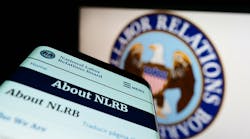Opting Out of Opt Out
Remember George Orwell’s novel “Nineteen Eighty-Four”? Remember how the official language of the country of Oceania was Newspeak: War Is Peace ... Freedom Is Slavery ... Ignorance Is Strength.
Now we’re faced with privacyspeak. Phrases like “We safeguard your privacy” or “We protect your privacy” mean just the opposite. Any document that uses the word privacy should be read carefully. Somebody wants to collect information about you, bundle it and sell it. (There are many applications of privacyspeak. However, this column will deal only with the practice of peddling information about what you bought on your retail stores’ credit cards.)
The key phrase in privacyspeak is “opt out.” If you see that ugly little phrase in a document, it means that the writer is proposing to collect all personal information about you and your transactions and peddle it (privacyspeak uses the word share, not peddle).
Now, this isn’t some proposal you can ignore, and it will go away. Under Federal Trade Commission rules, you have to provide a definite no to the proposal or it will go forward.
Let me give you an example of how opt out works. Last week my wife and I received a form called “A Privacy Message.” It came from a bank that extends credit to credit card customers of a number of retail stores; we had an account at one of them.
A big headline on the form announced: “We Safeguard Your Privacy.” Which wasn’t true at all, of course. What the bank wanted to do was release and sell any kind of financial information they could get their hands on to other banks and any kind of marketing organizations you could think of. The fact that these transactions included “your use of your account at an affiliated retail store” made me think that the bank wanted to peddle information about what we bought as much as how we bought.
Under the heading of “No Action Required” — a sure sign of opt out at work — the form proclaimed: “If you do not return this form, we will continue to safeguard your personal financial information.” Orwell couldn’t have written it better.
I have friends who refuse to believe that banks are allowed to use opt out: It’s unfair and, well, it isn’t the way Americans do business, they object. My answer to them is: Opt out will only get worse until consumers force the FTC, through Congress, to reject the concept that no response means consent.
Retailers are tiptoeing around the privacy issue in an attempt to prevent a backlash. At the National Retail Federation’s convention, I heard a conference attendee ask whether some software couldn’t be developed to enable retailers to mine their customers’ buying habits more extensively. The speaker’s reply: “The marketing software is available, but the retailers are hesitant to use it.”
Writing in the June issue of Stores, NRF’s general counsel Mallory Duncan trashed the past: “Years ago everyone in the community knew who you were. They knew about your family; local merchants knew what you bought and how frequently you bought it. People reminisce about those times, but the truth is that they really didn’t have much privacy.”
Poor consumers! They never knew the joy of opening a Privacy Statement that said some bank was going to peddle any information it could get its hands on and the only way to prevent it was to write no on the form and send it back in your envelope with your stamp.
Maybe old-timers didn’t have privacy. But they sure didn’t have opt out either.
Bernie Knill
contributing editor


